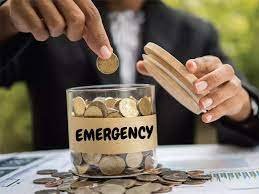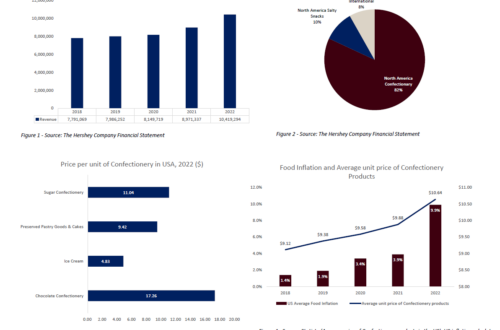
Fundamentals of Investing: An Emergency Fund
As a newbie who just learnt how to value companies, I was super excited and was very eager to practicalise my newly learnt skill. I was so impatient that I took all my earnings for the month as well as all my savings and bought shares of companies I believed were undervalued on the Nigerian Exchange Limited (NGX).
Unfortunately for me, this was in the middle of a bear market. I didn’t do a medical check-up, but I knew my blood pressure was over the roof as I saw the stocks I bought, lose money daily and what made this worse was the fact that I did not have any other disposable income. At this point, I needed money badly, and that led me to commit a very big blunder that every investor should avoid which is – buying at the top and selling at the bottom. I was selling my stocks at a loss to fuel my cash flow needs. It was a very brutal and painful experience.
I finally woke up one day and sold what was left of my shares which proved to be a very bad decision as the market rebounded and the bulls were in full swing. I had lost money in the bear market and lost the opportunity to partake in the bull swing.
Was my valuation correct? Yes. Then what was wrong? My liquidity management. It was abysmal.
The question now is: What could I have done differently?
Drum rolls…
I could have created an “Emergency Fund”.
When looking at the financial statements of organisations with structure, you will notice a financial statement line item called “Cash and Cash Equivalents”. Cash and cash equivalents are the most liquid current assets found on a business’s balance sheet. Cash equivalents are short-term commitments “with temporarily idle cash and easily convertible into a known cash amount”. As a company, you would have operating expenses, salaries, expenses for Inventories (Inventory or stock refers to the goods and materials that a business holds for the goal of resale, production, or utilisation.) and capital expenditures (Capital expenditure or capital expense is the money an organization or corporate entity spends to buy, maintain, or improve its fixed assets, such as buildings, vehicles, equipment, or land.)
It is important that you see yourself as a company with a structure from earning money, to saving it, to budgeting for expenses and then investing. There should be room for liquidity first. The first step of creating an emergency fund is to try to estimate what your monthly expenses are. Your yearly rent should be factored too, divided into 12 and added to that estimated monthly expense, if you want to go overboard, you can assume you would be leaving the current place you stay in and add expenses for an agent fee or other house expenses associated with getting a new place. Divide this by twelve too and add it to the initially estimated expense.
Now you have a monthly expense amount. The next step is to determine if you want to save for 6 months, 1 year or 2 years. I think the sweetest spot to save for is 1 year because then you would have saved for a full year’s rent, nothing more reassuring than that. The next step is to start the actual saving. This is more psychological than your skills in finance itself. You can start small and continue adjusting till you get the hang of it. I have found that the best place to put an emergency fund is a Money Market Fund.
Money Market Fund is an open-ended mutual fund that invests in a diverse portfolio of short-term, high-quality money market instruments such as Treasury Bills, Commercial Papers, Banker’s Acceptances, and Certificates of Deposit issued by rated Nigerian banks. I am picking a money market fund because it is the most liquid way to start small and start earning interest on the amount you have started saving. This would have been more difficult if you were trying to invest directly in Treasury bills or fixed deposits. The open-ended nature of a money market fund is one of its most wonderful features. Followed by the Fund manager’s obligation to maintain the price (no volatility, your money will always be your money plus the interest you earn on it).
It is important to have a sense of urgency while saving for your emergency fund. No matter how tempted you are, try not to put money into any long-term investments, till you have achieved your number. It is particularly important you don’t allow things like devaluation or inflation to make you make rash decisions to put your supposed emergency fund in something illiquid. Never act out of fear or excitement. Saving for an emergency fund must be as “boring” as possible.
Authors: Adebowale Atere & Solomon Ogene





8 Comments
Victor Ekere
Great piece, guys.
A question though: how do I gain comfort over the ability of the fund manager to fulfill his obligation of keeping the price relatively stable?
Adebowale Atere
Hello Victor, very interesting question. The Money market fund like any other mutual fund is regulated. So it’s basically in the fund manager’s interests to fulfill his or her obligations to investors in the fund by complying to the agreed rules by which the fund is supposed to operate.
Freshest
As rudimentary as necessary for starters. I’m looking forward to the next lesson that’d include the interest rates and recommended platforms for the emergency fund and for various forms of investment.
Arimiyau
Wow! Interesting I learnt something new today.
AHMED SHEHU BABA
Very interesting and enlightening piece. Well-done Adebowale and Solomon. Looking forward to reading next episode.
Ebuka Akosa
Very educational piece, a good read!
Oge
An interesting read. looking forward to the next
Yusuf Abeebulahi Olaiwola
Absolutely excellent
Short and conscise